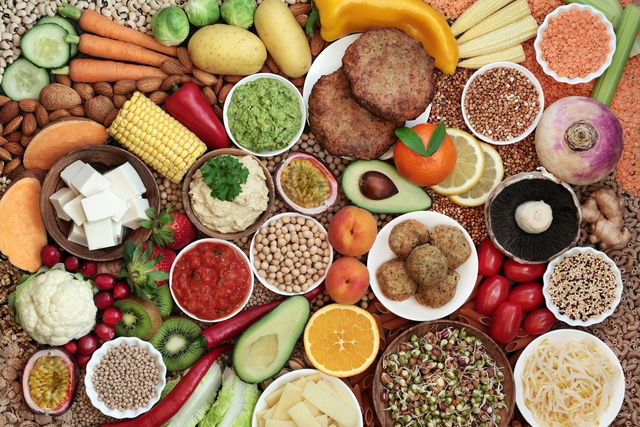Antioxidants are substances that protect healthy cells from damage caused by excessive free radicals. They help to prevent oxidative stress and the development of certain health conditions, like cancer, Alzheimer's and stroke.
Antioxidant foods naturally contain substances like like vitamin C, vitamin E, betacarotene, flavonoids, selenium and isoflavones. Antioxidants can also be naturally produced in the body by specific enzymes.
There are also antioxidant supplements available for purchase in pharmacies and natural health stores. However, excessive intake of antioxidants can increase your risk for health problems, and therefore these should only be used as directed by a doctor.

Health benefits
Antioxidant foods can provide benefits to your health, such as:
- Delaying early aging, as these foods contain substances that protect skin cells from free radical damage, preventing wrinkles and flaccidity.
- Preventing cardiovascular disease, as these foods prevent the oxidation of fat cells and stabilize LDL cholesterol and triglycerides.
- Preventing cancer, as antioxidant foods improve cellular repair and prevent damage to DNA to prevent the formation of cancer cells.
- Preventing Alzheimer's disease, as these foods protect nervous system cells from free radicals and improve blood flow to the brain.
- Complimenting the treatment of rheumatoid arthritis, as antioxidant foods contain anti-inflammatory action that reduce swelling and relieve pain.
- Preventing the treatment of cataracts and macular degeneration, as some antioxidants, like lutein and zeaxanthin, protect the eyes from UV rays.
Antioxidant foods help by providing free radicals with an electron they are missing to become stable. Once stable, free radicals will not attack healthy cells or other important molecules in the body.
Free radicals are molecules that emerge as a result of oxygen burning from cells. They can accumulate in high levels in the body with air pollution, smoke, and stress.
Food list
The following table outlines specific antioxidant foods, sorted by the type of antioxidant they contain:
Other types of antioxidants include chia seeds, flaxseeds, chestnuts, oranges, passion fruit, peaches, spinach and eggs.
Antioxidant supplements
Antioxidant supplements, like vitamin C, vitamin E, selenium, and betacarotene, can help to prevent and treat conditions like high cholesterol, high triglycerides, cardiovascular disease and cancer.
However, there are not enough scientific studies available to support the benefits of antioxidants in the context of disease prevention and treatment. This is because antioxidants that are isolated into supplements are not as functional as foods that naturally contain antioxidants, that work together with other nutrients found in the food source.
In addition, the excessive consumption of supplements can increase your risk for diseases, like lung cancer, prostate cancer and stroke. Therefore, antioxidant supplements should only be taken as prescribed by a doctor or registered dietitian.
Types of antioxidants
The two main types of antioxidants are:
- Endogenous antioxidants, which are enzymes, like catalase, glutathione peroxidase and superoxidase dismutase. These are produced naturally in the body and are influenced by factors like diet, stress and sleep. With normal aging, production of endogenous antioxidants tends to decrease.
- Exogenous antioxidants, which are vitamins, bioactive compounds and minerals, like vitamin C, flavonoids, lycopene, zinc and selenium, which are present in food and have antioxidant action in the body.
Maintaining a healthy, varied diet that is rich in fruit, vegetables, legumes and whole grains can offer great amounts of exogenous antioxidants in the body.
